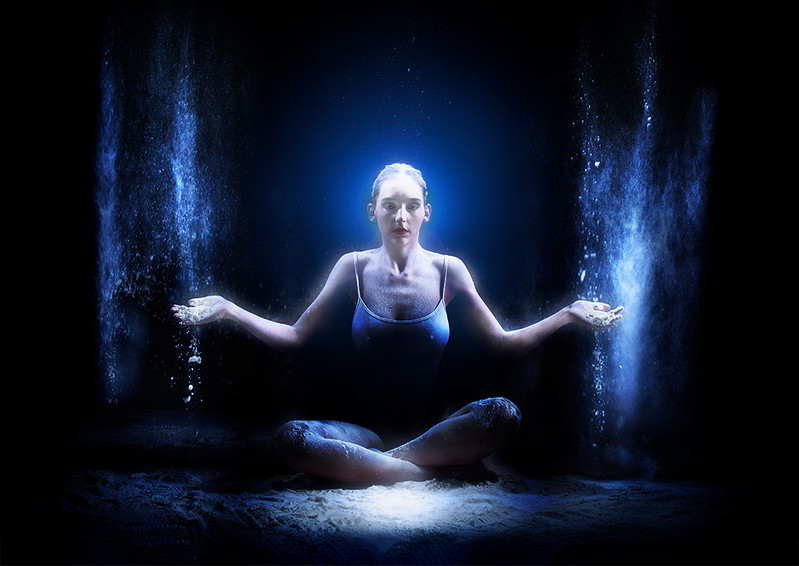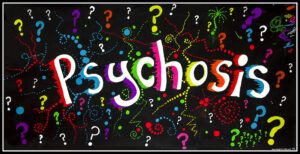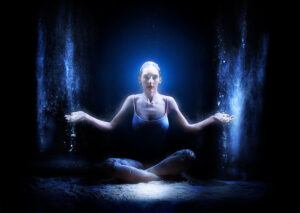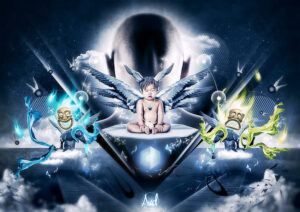
Contents
- 1 Where Psychiatry and Spirituality Collide
- 2 What Is Mysticism?
- 3 What Is Psychosis?
- 4 The Overlap
- 5 Context Is Everything
- 6 Psychiatry’s Blind Spot
- 7 Mysticism as “Positive Psychosis”?
- 8 My Personal Take
- 9 Christianity and Discernment
- 10 A Balanced Approach
- 11 Final Thoughts
- 12 Frequently Asked Questions: Mysticism vs. Psychosis
- 13 Related Articles
Where Psychiatry and Spirituality Collide
When does a spiritual awakening become a psychiatric symptom?
It’s a question I’ve wrestled with personally — as someone trained in hypnotherapy, grounded in Christianity, and diagnosed in the past with schizophrenia. The line between mystical insight and psychotic delusion can be razor thin. In fact, depending on who you talk to, the very same experience could be labelled either divine or delusional.
This tension isn’t new. Mystics throughout history have faced suspicion, ridicule, and even medicalization for describing visions, voices, or encounters with the divine. Meanwhile, psychiatry — particularly when stripped of any spiritual framework — often treats those same phenomena as signs of illness.
So where do mysticism and psychosis overlap? And how do we tell the difference? Let’s dig in.
What Is Mysticism?
Mysticism is the pursuit of direct, personal experience of the divine or ultimate reality. It is not about intellectual knowledge, but union.
Mystics across traditions describe:
- Visions of light, figures, or entire cosmic landscapes.
- Voices or inner words of wisdom.
- Feelings of overwhelming love, peace, or connection.
- Loss of ego and merging into a greater whole.
Examples include:
- St. Teresa of Ávila (Christianity): Spoke of inner “mansions” of the soul and ecstatic union with God.
- Rumi (Islamic Sufism): Wrote poetry about dissolving into divine love.
- Buddha (Buddhism): Described enlightenment as the end of illusion and the realization of non-self.
Mystics are often revered, but only when their experiences align with a recognized tradition.
What Is Psychosis?
Psychosis, in psychiatric terms, is a state where a person loses touch with consensus reality. It can include:
- Hallucinations (seeing/hearing things others don’t).
- Delusions (fixed false beliefs, often paranoid or grandiose).
- Disorganized thought and behavior.
- Impaired functioning in daily life.
Schizophrenia is the most well-known psychotic disorder, though psychosis can occur in bipolar disorder, depression, or even due to trauma or substances.
Where mystics are often celebrated, psychotic individuals are often pathologized, medicated, and stigmatized.
The Overlap
Here’s where it gets tricky: the content of mystical experiences and psychotic episodes can look nearly identical.
Mystic: “I heard the voice of God guiding me.”
Psychotic patient: “I heard voices telling me I have a divine mission.”
Mystic: “I was filled with light and saw angels.”
Psychotic patient: “I saw beings of light who spoke to me.”
Mystic: “I lost my sense of self and became one with everything.”
Psychotic patient: “I’m not myself anymore — I’ve merged with the universe.”
From a psychiatrist’s chair, both could sound like symptoms.
Context Is Everything
The difference often lies not in the experience itself, but in how it is interpreted and integrated.
1. Cultural Validation
If your experience aligns with a recognized religious tradition, it’s more likely to be celebrated. St. Teresa’s visions were canonized; a modern woman describing the same thing in a clinic might be medicated.
2. Impact on Functioning
Mystical experiences usually leave people more grounded, loving, and purposeful. Psychotic episodes often leave people isolated, fearful, or dysfunctional. The fruit of the experience is a crucial marker.
3. Ego Inflation vs. Ego Dissolution
Mystics usually emerge humbled — “God is great.” Psychosis often produces ego inflation — “I am God.” The direction of the claim matters.
4. Integration and Support
Mystics often have mentors, traditions, or communities to help interpret and anchor their experiences. People in psychosis are often alone, overwhelmed, and unsupported.
Psychiatry’s Blind Spot
Modern psychiatry, especially in its atheistic or materialist form, often lacks a category for the sacred. Without that, mystical states get shoved into diagnostic boxes.
This blind spot leads to:
- Over-pathologizing: Treating all visions/voices as symptoms.
- Medication-only approaches: Suppressing experiences without exploring meaning.
- Dismissal of the spiritual dimension: Ignoring the possibility that some altered states are transformative rather than destructive.
To be fair, psychiatry has also saved lives — delusional states can be dangerous, and medication can stabilize. But when it comes to mystical experiences, psychiatry often struggles to distinguish gift from illness.
Mysticism as “Positive Psychosis”?
Some psychologists, like R.D. Laing, argued that psychosis can be a kind of “spiritual crisis” — a breakdown that could lead to breakthrough if supported properly. Similarly, transpersonal psychology (pioneered by Stanislav Grof) treats mystical and psychotic states as points on the same spectrum of human consciousness.
The difference? Support, framing, and outcome.
- With support, an altered state can become mystical awakening.
- Without it, the same state may spiral into psychosis.
My Personal Take
Having lived through both schizophrenia and spiritual practice, here’s how I see it:
- Mysticism feels expansive, humbling, and ultimately life-giving. It connects me to love, meaning, and community.
- Psychosis feels chaotic, paranoid, and isolating. It disconnects me from reality and stability.
They may share a surface vocabulary — visions, voices, parallel universes — but their effects couldn’t be more different. One opens the soul; the other shatters it.
Christianity and Discernment
Christianity actually provides a framework for testing the difference. The Apostle John writes: “Beloved, do not believe every spirit, but test the spirits, whether they are of God.” (1 John 4:1).
That testing includes:
- Does the experience lead to love or fear?
- Does it build humility or inflate pride?
- Does it strengthen faith and community, or isolate the believer?
This isn’t so different from psychiatry’s concern with outcomes and functionality — except it acknowledges the possibility of divine origin.
A Balanced Approach
Instead of pitting mysticism and psychiatry against each other, we need a balanced approach:
- Respect both lenses. Mystical experiences may be real encounters with the divine. Psychiatry can still provide grounding when experiences destabilize.
- Avoid fear-based dismissal. Not every vision is psychosis; not every altered state is demonic.
- Anchor experiences in community. Whether church, therapy, or trusted mentors, support makes the difference between awakening and breakdown.
- Hold humility. Both mystics and patients can get lost in ego — “I’m chosen,” “I’m special.” The safest path is humility before mystery.
Final Thoughts
Mysticism and psychosis exist on a spectrum of human consciousness. Both can involve visions, voices, and altered states. Both can transform lives — but one leads to integration, the other to fragmentation.
Atheist psychiatrists may dismiss mysticism as superstition, just as religious leaders may dismiss psychosis as demonic. The truth is more nuanced: human consciousness is vast, mysterious, and not easily boxed into categories.
For me, the lesson is this: Don’t pathologize every mystical experience, and don’t romanticize every psychotic break. Walk the middle path, with discernment, humility, and support.
After all, history is filled with mystics who changed the world — and patients who were written off as insane. Sometimes, they were the same people.
Frequently Asked Questions: Mysticism vs. Psychosis
1. Can schizophrenia ever be a form of spiritual awakening?
Some psychologists, like R.D. Laing and Stanislav Grof, suggest that psychosis can sometimes resemble a “spiritual emergency.” In other words, what psychiatry calls illness might, in some cases, be a crisis of awakening. The difference depends on how the state is supported. Without grounding, it can be destructive; with guidance, it may become transformative.
2. How can you tell the difference between mysticism and delusion?
Look at the fruits of the experience:
- Mystical states usually bring humility, peace, love, and integration.
- Delusional states often create paranoia, chaos, isolation, or inflated ego.
The content might sound similar, but the outcome is the key difference.
3. Why do psychiatrists often dismiss mystical experiences?
Modern psychiatry is built on a materialist framework. Without acknowledging the possibility of God or spirit, visions and voices are automatically explained as brain dysfunction. This keeps psychiatry “scientific,” but it can blind it to the deeper meaning of some experiences.
4. Should Christians fear altered states of consciousness?
Not necessarily. Scripture warns against deception but also affirms that God speaks through visions, dreams, and inspiration. The key is discernment: Does it lead to love or fear? Humility or pride? Connection or isolation? A healthy altered state can be a gift, but obsession with mystical experience for its own sake can become dangerous.
5. Can hypnosis or meditation trigger psychosis?
For some vulnerable individuals, yes. Deep trance or meditation can destabilize people who already have fragile mental health. That’s why grounding practices, professional guidance, and discernment are essential. For most people, however, hypnosis and meditation are safe and beneficial.
6. Are all voices in the mind unhealthy?
Not always. Many mystics throughout history have described inner voices of guidance, inspiration, or prayer. Psychiatry labels these as hallucinations if they cause dysfunction. The real question is whether the voice helps or harms, uplifts or destabilizes.
7. Is it possible to be both a mystic and have a mental illness?
Absolutely. Having a psychiatric diagnosis does not invalidate mystical experience. In fact, some of history’s most profound spiritual teachers lived with what we’d now call mental illness. The challenge is learning to navigate consciousness wisely, without romanticizing illness or dismissing authentic spirituality.






